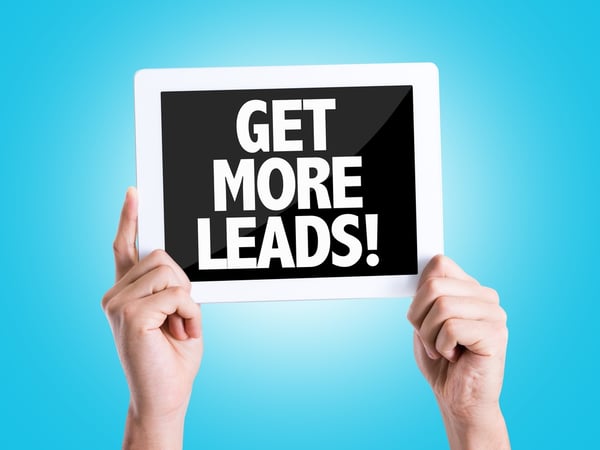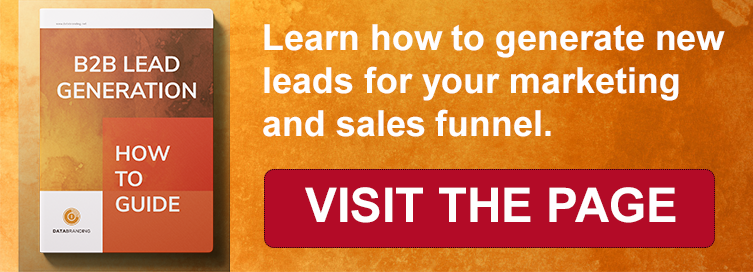
A complete strategy of digital marketing goes beyond advertising on the internet, it involves accompanying your clients all the way, from the moment they get to know you, until they make the purchase (and even after that!). In this article, you will learn more about this strategy and about what a lead is, how to identify it and most importantly, reasons to identify it.
A lead in digital marketing
In the digital space you have people that are looking for answers. They ask the questions to a search engine like Google and if your website has the answer your site is going to appear on the search results. This is how you have new visits to your website.
Also you have people that are browsing on social media and they see one of your content or message, this message has a link to your website and they connect to your information. These people are called VISITORS.
Your goal is to convert a VISITOR into a LEAD!
You might have a lot of visitors but, if you don't have an email and a name, you don't have a lead. So a lead is someone who has showed some interest in your solution by making any type of contact with you and give you an email or and a name (Or any other open channel of communication like phone number). They convert from visitors to leads by:
- Filling up a form in your website
- Download an ebook or any content in your website
- Starting a conversation in your inbox, chat or contact page.
- Call you directly.
- Visit you physically.
To generate leads you need to have a strategy for attracting and for converting.
What to do with a lead?
The digital marketing strategy is based on educating your customers with quality content about your product or service. Today's customers go to the internet looking for the answers and solutions they need to solve their problems. A successful digital marketing strategy will help them to know more about you and they ways you can help them solve their problem with your service/product.
In other words, you'll "walk along" with your clients through their purchasing process by offering them all the information they need so they get to know you better and, in the end, buy from you (or decide not to buy, if they're not the right client for you). These clients go through several stages (Stages of the buyer's Journey) while getting to know your company. First, they are just "a curious visitor", but as they become more interested in your offer, they change their status as a client.
A lead is that client who has already gone through the first stages and knows you well enough to get in touch with you or who has shown to have a greater interest in your product or service. This client is no longer just a curious customer, it's someone who's informed about your company and is interested in getting in touch with you, either to get some more information, or to make the purchase.
You can attract the kind of lead you want.
Now, each company defines what kind of potential customers want to attract and convert them into a lead. How do you define your leads? What parameters should you use to identify them as such?
Defining your leads into a Buyer Persona (A lead for web marketing)
Gather your team (every point of view and opinion matters!) and decide:
- Who is the ideal customer profile for the company? Demographics, industry, experience, budget ... gather all the information you need so that you can define a basic profile of those who could become your leads.
- Who's not your client? You also need to decide as a team who are those people who will never be your customers, that is, those who will never pay for your services or product. There could be many reasons for this: they don't have the budget for it; they don't match your way of working; they don't recognize the true value of your product or service, or you are just not the answer they were looking for because you can't indeed, solve their problem. Deciding this, will allow you to focus on those who could be your clients and not waste your time - or their time - in negotiations that will get you both nowhere.
- With all these information make a Buyer Persona profile and a Buyer's Journey.
How do i follow up a lead?
Your lead have a lot of questions to be answered before they can buy from you. Yo provide all this answers through a nurturing campaign. This is a communication campaign that can be delivered through email where you address mainly 3 questions:
- Why do they need your solution and exactly what it solves?
- What is the result or the outcome?
- Why they should buy from you?
Based on this information, design a methodology to implement in your CRM or automation platform. Decide which actions will be the ones to finally categorize a potential client as a really interested lead for you:
Number of visits to your page, number of downloaded ebooks, a first contact attempt from them (by mail or phone). How engaged is your lead and is he or she serious about solving their issue?
At what point will your lead turn from lead to MQL (Marketing qualified lead) and a MQL into SQL (Sales qualified lead) in your marketing and sales funnel? When can you consider that you are ready to take that step? You decide it, based on the information you worked with while deciding your ideal client and you landed on your automation or CRM platform in order to make the work of both areas, marketing and sales, more efficient.
Reasons to identify a lead
All of the above takes us to a key question: why bother doing all this? Why gather the whole time, develop a customer profile, determine the actions that will identify it as such and automate these criteria in a CRM? It sounds like a lot of work and, if we do not find the purpose of doing it, definitely a waste of time. Isn't it enough to just advertise our product? The answer is, not anymore.
Within a digital marketing strategy, it is crucial to work based on the clients and their needs and not based on what I want to say about myself and my company. Today's customers no longer want to hear words they are not looking for, they want answers to their specific questions and needs, that's why a whole digital marketing campaign is the best answer for this new type of customer.
If we can not identify our leads within their research/purchase process, we can miss the chance to contact them directly and close a sale.
Remember that, after all, a digital marketing strategy can get lost in the shape of information that many read but , at the end, doesn't translate into sales. You need to decide at what moment does a visitor becomes a client and most of all, a client that is truly interested in knowing you better. That is how you will be able to take the next step that is needed in order to close the sale and keep your strategy from being just good source of information and nothing else.
Learn how to get more targeted leads for your business:

